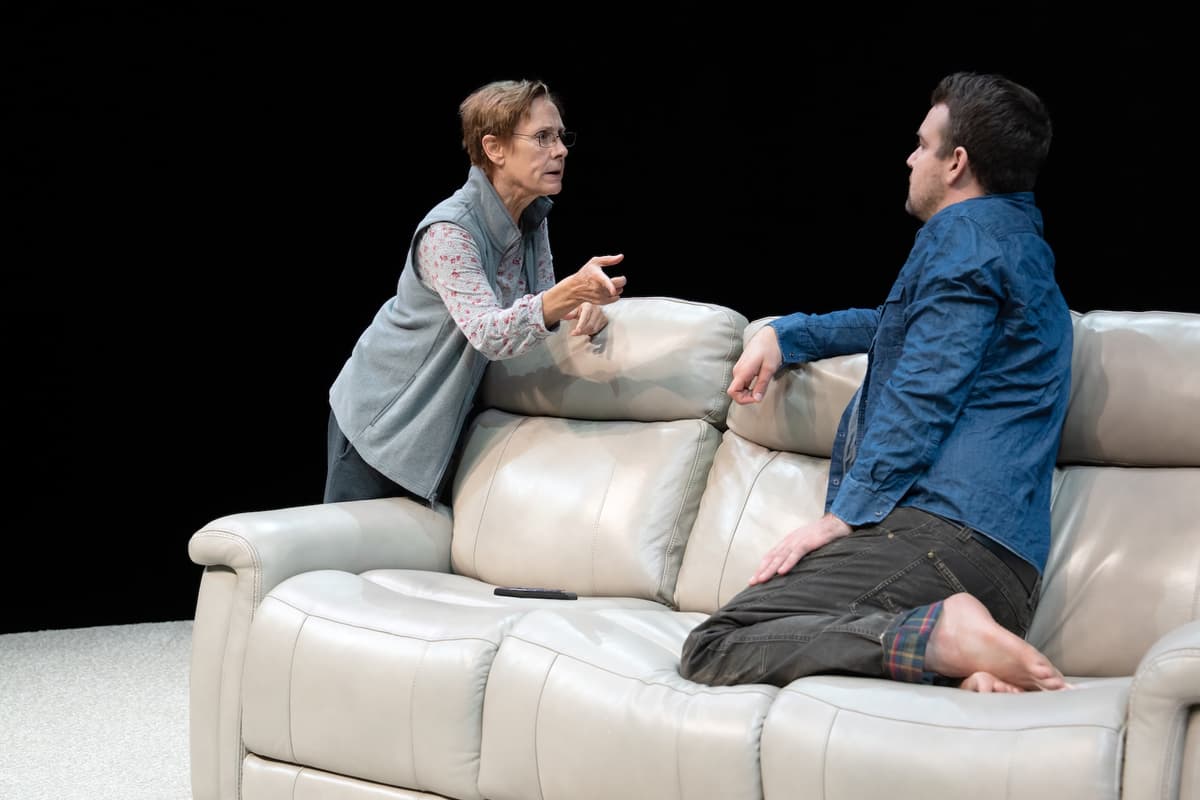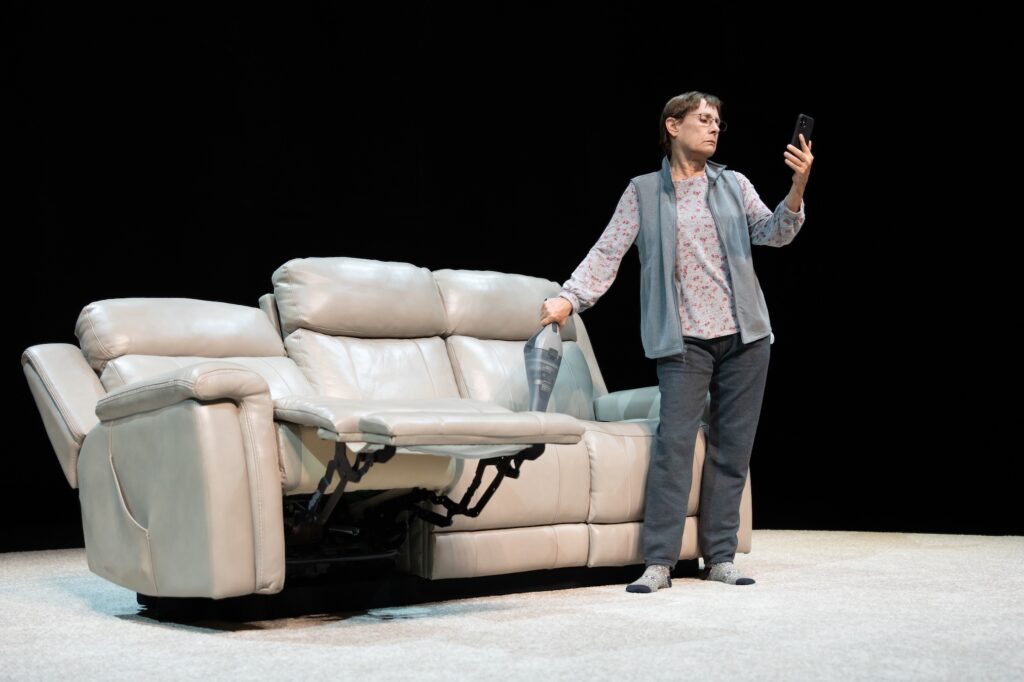A Playwright With Many Acclaimed Works, Samuel D. Hunter, Finally Makes It to Broadway With ‘Little Bear Ridge Road’
Hunter possesses that rarest of gifts among creative artists: the ability to convey both great pain and genuine hope, in plays that can be shattering and heartwarming and bleakly, bitingly funny all at once.

The set for “Little Bear Ridge Road,” the new production that marks Samuel D. Hunter’s Broadway debut, is strikingly spare: Scott Pask, a veteran designer who has earned multiple Tony Awards, has simply provided a lit ceiling fan and a sofa that are used to suggest a modest home and a few other locations.
This seems fitting, as Mr. Hunter has typically not been one for flashy gestures, which may be a reason the playwright — whose many duly acclaimed works include “A Bright New Boise,” “Lewiston/Clarkston,” and “The Whale,” which was adapted into a film that won Brendan Fraser an Oscar for best actor — has not been produced previously in the commercial theater capital.
That’s a shame, because Mr. Hunter possesses that rarest of gifts among creative artists: the ability to convey both great pain and genuine hope, in plays that can be shattering and heartwarming and bleakly, bitingly funny all at once — and that, crucially, grant dignity to the most ordinary and troubled people.
Like most of his plays, “Little Bear” is set in Idaho, in a small town about a half hour outside the city of Moscow, where the playwright grew up. There we meet Sarah, a woman in her 60s who has chosen this remote location because, as she says, it “suits me better. Not being around — people.” Significantly, the play is set during the Covid pandemic, which would seem to accommodate this preference.
Sarah is nonetheless acquiring a housemate, at least temporarily: Ethan, her nephew, has arrived from Seattle following the death of his father, Sarah’s brother, who fought a long battle with meth addiction. Ethan and Sarah have a strained relationship, stemming from the late man’s utter ineptitude as a parent, and Ethan is ostensibly staying just while selling his dad’s house and putting his affairs in order.

The visit stretches on, however, as we discover that Ethan — not surprisingly, given his difficult background — also has problems sustaining connections, personally and in his professional life. In his 30s, he has yet to get his writing career off the ground, taking on odd editing jobs to put off pursuing his own vision, and he’s still harboring resentment over his latest boyfriend, a more successful and controlling man who left him feeling exploited.
Ethan’s prospects seem to lift when he meets James, a graduate student in astrophysics at the local university. Sarah, who is hardly as narrow-minded as Ethan had initially feared — her nephew’s homosexuality is “the most interesting thing about you,” she assures him early on — welcomes this development, but she is also quietly dealing with her own very serious crisis; her predicament both tears at Ethan’s heart and provides him with another excuse for not moving forward in any capacity.
Director Joe Mantello, whose many Broadway credits range from starry revivals of classics to other bold and sometimes similarly intimate new works, has assembled a superb cast to follow these characters as they struggle with their own demons and each other’s. Laurie Metcalf, who delivered a powerhouse, Tony-winning performance several years ago in Mr. Mantello’s production of Edward Albee’s “Three Tall Women,” has an even juicier role in Sarah, and she imbues it with all the emotional transparency and lacerating wit you’d expect.
Recently retired from her job as a nurse, Sarah bustles around her home, forever vacuuming or preparing coffee or doing anything to distract herself from the profound disappointments and bad luck that have defined her life. She also watches a TV program that may or may not involve aliens; throughout the play, Mr. Hunter explores how human connection has been disrupted more and more in recent years not only by a pandemic but by distractions that tend to be more favorably considered.
This includes more advanced digital technology. When James and Ethan have an intense argument at one point, the latter tellingly turns to his phone, using the device to shut out the person he has come to love, who has just confirmed that he loves him as well. Micah Stock, the accomplished stage and screen actor who plays Ethan, is as quietly devastating in the moment — and harrowing during the louder exchange that precedes it — as he is hilarious in other scenes, lending a distinctly wry presence and expert comic timing to the role.
John Drea’s extremely likeable, immensely patient James complements Mr. Stock’s character and his portrait. Observing the night sky with James, Ethan admits he has never been one for stargazing — he doesn’t even know where the Big Dipper is in the sky — and James is stunned. “To look at the stars,” he notes, “you literally just turn your head up.”
Suffice it to say that by the time “Little Bear Ridge Road” reaches its final, hauntingly beautiful passage, Ethan is at least learning the importance of looking beyond despair. It’s a lesson that Mr. Hunter has conveyed consistently, and it’s a blessing that he has found a prominent venue for it.

